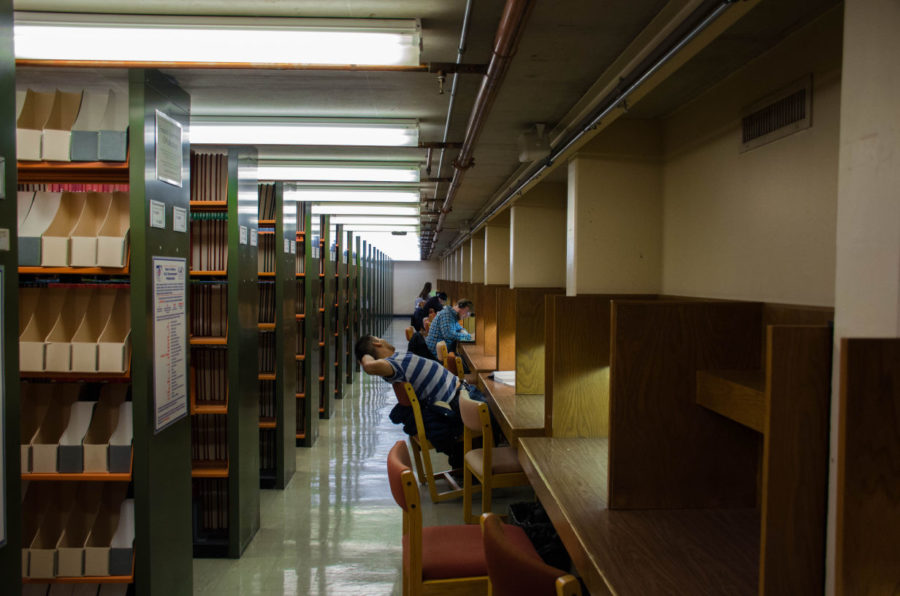Parks Library forms residency program
October 4, 2017
In early July, Iowa State University Division of Academic Affairs released the 2016-2017 Diversity and Inclusion Report. Among other action items listed in this report, one in particular aims to create diversity at Parks Library, the residency program.
Over the last few years, a subcommittee made of Kim Anderson, Harrison W. Inefuku, Petrina Jackson, Rebecca Jackson and Hilary Seo of the University Library Committee on Diversity have been developing a residency program due to an outcry by diverse students for better representation in the Iowa State faculty.
This program is aimed at attracting future librarians from underrepresented groups to seek careers in academic and research librarianship.
The program includes a three-year plan to provide early career librarians from underrepresented groups with an opportunity to experience work in an academic and research library.
The first year allows residents to gain familiarity with the library’s different functions, while the second year the residents work with their base department to learn more about the administration aspect of an academic research library and the diversity-related services offered. The third and final year, residents work to complete capstone projects and present their findings through presentations and publications.
In this residency, there are three different departments that have been selected to mentor these residents, including digital scholarship and initiative, library instruction and special collections.
“We turned to our librarians who are supervisors to ask for areas that would be of interest to hosting a resident but also we wanted to have a nice grouping so that a resident could select where they’re going to go,” Dean of Library Services, Beth McNeil said.
After starting the search for a resident in January 2017, they successfully found one: Shaina Destine.
Destine, who came to Iowa State from Washington, D.C., rotates throughout all the different library departments, working with specialized staff in each and setting up and organizing special projects.
Destine also has a background in working with diverse topics and research. At the University of Maryland, she worked as a graduate coordinator for LGBTQ student involvement and advocacy.
In Washington, Destine worked in the Library of Congress as a volunteer and an intern at the National Archives, where she worked on subject guides for women in the Black Panthers movement.
Iowa State is not the only school to implement this type of program. Other universities including the University of Iowa, West Virginia University and University of Illinois at Urbana-Champaign have implemented very similar programs. These similarities stem from participation and membership in the Association of College and Research Libraries (ACRL) Diversity Alliance.
According to the ACRL Diversity Alliance website, the coalition connects and unifies collegiate libraries from around the country that are committed to hiring individuals with reputable qualifications from underrepresented racial and ethnic groups. Iowa State chose to join the alliance for these reasons.
As outlined by McNeil, the residency initiative is important to the university because it plays a role in increasing diversity in the library staff, supporting a specific university strategic goal, per the ACRL Diversity Alliance agreement.
The university strategic goal in question strives for diversity efforts across Iowa State to give students, staff and visitors to the university a welcoming, safe and inclusive environment to share thoughts and ideas. To McNeil, the library should fit this description.
“Anything we can do to further their academic success through library collections or services we are happy to do,” McNeil said.
On a student level, Destine said that the program is important because to her it seems like the university needs more diversity. She argues that every person benefits from being surrounded by a diverse community.
“That means more than just getting more people of color in the door,” said Destine.
She argues that every person benefits from being surrounded by a diverse community. By being surrounded by different people, students and staff are exposed to multiple backgrounds and stories.
“I am also getting the opportunity to be what I needed when I was a young bookworm growing up in the South Bronx,” Destine said. “I needed to see a librarian that looked like me and I never did. I get to be that for a young Cyclone at this institution.”







